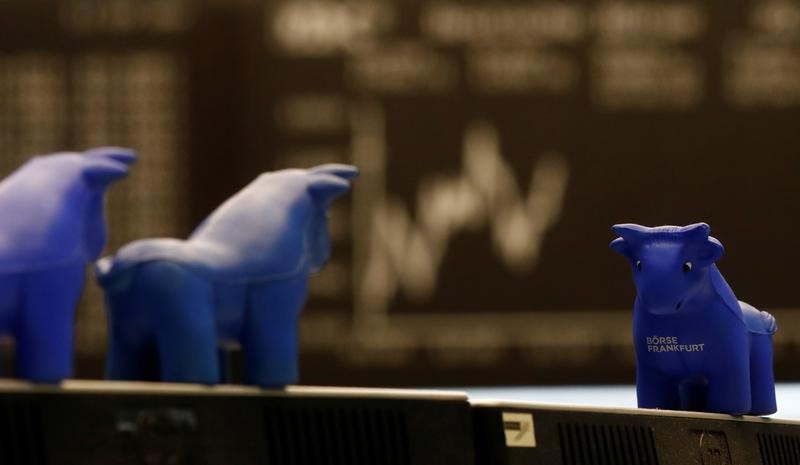European Stocks Drop; Economic Activity Concerns Weigh
2022.07.05 11:51

By Peter Nurse
Investing.com – European stock markets edged lower Tuesday, with concerns about the region’s economic recovery diluting the positive start to the new month.
By 04:20 AM ET (0820 GMT), the DAX in Germany traded 0.3% lower, the CAC 40 in France fell 0.5%, while the UK’s FTSE 100 dropped 0.6%.
The region’s main equity indices have largely traded higher in the early days of the new month as investors sought out bargains after a bruising first half of the year.
Worries that central banks around the world will push economies into recession in tackling rampant inflation sent investors running for cover during the first six months of the year, with the broad-based pan-European STOXX 600 down some 16% year to date.
Helping the tone Tuesday was healthy economic data out of Asia, as China’s June services activity expanded at the fastest in almost a year while Japan’s service sector activity grew at the fastest rate in over eight years.
That said, the news was less impressive in Europe as French industrial production was flat in May, and PMI numbers throughout the Eurozone all showed slowing activity.
In corporate news, AstraZeneca (LON:AZN) stock rose 0.3% after the pharma giant announced plans to acquire oncology firm TeneoTwo in a deal worth up to $1.27 billion.
J Sainsbury (LON:SBRY) stock rose 1.5% after the U.K. supermarket chain backed its full-year profit guidance despite concerns over inflation pressures.
SAS (ST:SAS) stock fell 6% after the Scandinavian airline filed for bankruptcy protection in the United States to help accelerate restructuring plans.
Elsewhere, central bank action will remain a dominant influence this week, with the Reserve Bank of Australia lifting its cash rate by 50 basis points to 1.35% earlier Tuesday.
The Bank of England is due to publish its latest biannual Financial Stability Report later in the session, while the Fed releases the minutes of its latest policy-setting meeting on Wednesday and the European Central Bank does the same on Thursday.
Oil prices edged higher Tuesday, helped by further supply cuts although concerns over a possible global economic slowdown limited the gains.
Norwegian offshore workers began a strike earlier in the session that is expected to cut the oil output by as much as 130,000 barrels per day from Wednesday, the country’s oil and gas association forecast on Sunday, about 6.5% of Norway’s production.
That said, there remain worries that economic activity, and thus demand for energy, will be hit amid a broad tightening in global financial conditions. This is occurring as a number of central banks, and the U.S. Federal Reserve, in particular, fight rampant inflation.
By 04:20 AM ET, U.S. crude futures traded 1.6% higher at $110.16 a barrel, while the Brent contract was up 0.2% at $113.75. There was no settlement for WTI on Monday because of the Independence Day public holiday in the United States.
Additionally, gold futures rose 0.1% to $1,803.75/oz, while EUR/USD traded 0.6% lower at 1.0358.








